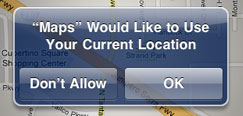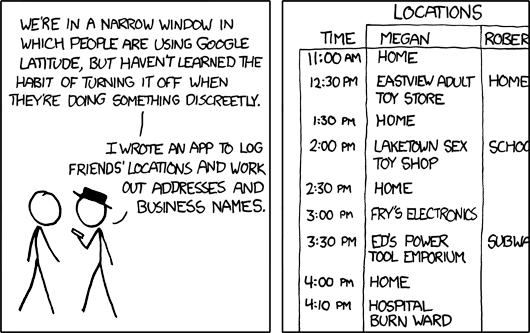There’s been a fuss in the blogosphere in the last 24 hours about an Apple location tracking scandal after the O’Reilly Radar alleged that Apple is intentionally gathering your iOS location data.
However, it was not until 7:45 a.m. the morning after the scandal broke that O’Reilly clarified that there is no evidence to suggest this data is leaving your custody. Due to this glaring omission in the original story, many people around the web have misunderstood the gravity of the situation and are calling this iPhone location tracking discovery a privacy scandal.
Here’s why the location tracking scandal is likely overblown:
- As noted above, it should be emphasized that your personal location file is being stored on your computer, and your computer alone. Apple is not collecting your personalized location data and storing it on their servers.
- While Apple does collect some location data from iPhone users, this data is collected anonymously and in a way that “does not personally identify you,” according to Apple’s privacy policy.
 Although your iPhone location data is stored on your computer by default, apps can only access this location data if you opt in to location tracking.
Although your iPhone location data is stored on your computer by default, apps can only access this location data if you opt in to location tracking.
Recall that location-based apps prompt you with a notification that asks you if you would like to harness your location — to which you may reply “OK” or “Don’t Allow.”
- You can turn Location Services off entirely in Settings >> General >> Location Services. Update: Apparently, disabling location services does not stop your iPhone from tracking your location.
- Location data is not perfectly precise. After tracking my location history with the free iPhone Tracker app, it appears the iPhone may be merely tracking the nearby cell towers that are used to pinpoint your location.
My iPhone Location Data
Here is an overview of my locations in the last year, as stored on my computer. You can download the iPhone Tracker app to see a map of your own location history.
![]()
Yes, it can be shocking to see this map and you might naturally elicit a knee-jerk reaction for fear that Apple is building a Big Brother-esque database of individual iPhone users’ locations. However, there is simply no evidence that Apple is storing these personalized maps on their own servers, despite that it is building a database with some broader location data.
Wired notes that the reason Apple collects anonymized location data was explained in a letter last year by Apple’s general counsel Bruce Sewell: “Apple must be able to determine quickly and precisely where a device is located. To do this, Apple maintains a secure database containing information regarding known locations of cell towers and Wi-Fi access points.”
Nevertheless, it would not hurt for Apple to respond to these privacy concerns once again and better clarify its privacy position. What is just as worrisome as Apple storing your location data is a malicious person having access to your location file on your computer in the event that your computer is stolen.
Are you concerned about the Apple location tracking scandal? Feel free to share your opinion in the comments.


